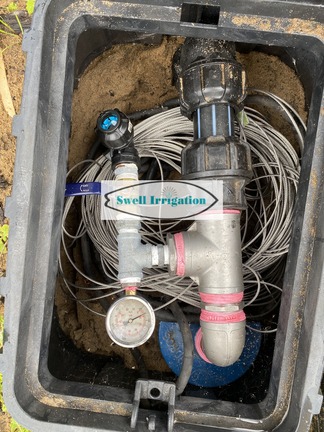Bore Pumps: The Lifeline of Your Water Supply
Water pumps serve as a lifeline for communities facing water scarcity. Be it cooking, drinking, or agriculture; water pumps are indispensable tools, contributing to the wellbeing of the societies. In most parts of the country, getting access to a reliable and consistent water supply can take time and effort. Bore pumps are a lifeline for those residing in rural areas with limited sources to municipal water sources.
Bore pumps are the pumps that are drilled directly into the underground water. Like an aquifer, the pump pressurizes the water to collect into the device and pull out water to the user. It’s primarily used in irrigation as it proves to be economical and environmentally friendly.

Reach Us for other Services
In this article, we’ll explore the significance of bore pumps and how they contribute to the stability of water supplies. But before that, let’s understand the bore pumps in detail.
What Are Bore Pumps?
A bore is basically a hole or a hollow space made in the ground to fit the bore pumps. Bore pumps are groundwater pumps designed to extract water from underground sources, including boreholes, wells, and aquifers. The pressure from bore pumps drives the groundwater into the plumbing system and releases the water from the other end.
The bore is made up of four parts:
- Bore Hole: It’s a hole created to form the basement of the bore pumps. It can range from 300mm to 400mm in diameter. It can be 15m deep for residential properties or upto 400m for large, commercial bores.
- Bore Casing: It forms the bore’s piping structure. The bore casing keeps away the rocks and prevents the hole from collapsing. And most importantly, all the power cables and outline pipes go through the casing into the submersible bore pipes.
- Bore Screen: Also referred to as a well screen, it comprises a section along with the main pipe. It reinforces the bore casing and holds its round circumference into place. It acts as a reservoir to source water to the receiver’s end.
- Gravel Packing: It’s a material used to fill the gap between the core casting and the sides of the holes. It serves as a protective layer to keep the earth from collapsing into the pipe and add structural strength.
Bore pumps come in various types, including submersible and surface-mounted, and they are selected based on the depth of the water source and the intended application.
Read further to understand the importance of bore pumps.
The Significance of Bore Pumps
Reliable Water Supply
Bore pumps are known for their reliability. Unlike surface water sources, groundwater is less susceptible to seasonal variations, droughts, and pollution. Bore pumps offer a consistent supply of water, even in arid regions or during dry spells, making them essential for agriculture, industry, and households.
Agriculture
In agriculture, bore pumps are indispensable. They provide the water needed for irrigation, livestock, and other farming activities. Farming operations would be severely hampered without a reliable water source, and crop yields could be negatively impacted.
Rural Communities
Bore pumps are often the primary water source for rural communities that are not connected to municipal water supplies. They ensure that these communities have access to clean and safe drinking water, which is vital for public health and quality of life.
Industrial Use
Many industries rely on bore pumps for their water supply needs. Whether it’s for manufacturing processes, cooling systems, or general facility maintenance, bore pumps are critical to industrial operations.
Domestic Water Supply
Even in urban areas, bore pumps are used in private homes, particularly in regions where municipal water supply is unreliable or unavailable. They serve as a backup water source or provide water for landscaping and pool maintenance.
Choosing the Right Bore Pump
Selecting the appropriate bore pump is crucial to ensure efficiency and longevity. Factors include the depth of:
- the water source,
- the required flow rate,
- power source, and
- the type of pump (submersible or surface-mounted)
Consulting with a professional well-drilling or pump installation expert is often advisable to make the right choice. If you’re looking for bore pump services, connect with us today.
Maintaining Bore Pumps
Bore pumps can last upto 20 years, provided they are made of high-quality materials. Proper maintenance is essential to keep bore pumps operating at their best.
Regular inspections and servicing help prevent breakdowns and ensure water quality remains high. Periodic checks of the pump, electrical components, and water quality are vital to the pump’s longevity and the safety of the water supply.
To Conclude:
Bore pumps are the unsung heroes of water supply, especially in the rural regions of the world. These devices ensure that water is accessible, reliable, and safe for various purposes, from agriculture to domestic use.
Understanding the significance of bore pumps and ensuring their proper installation and maintenance is vital to guaranteeing a consistent and secure water supply for communities and industries alike.
To know more about bore pumps or looking forward to bore pump services, connect with us today.
Quality Services is what we do!
Interested in any of our services? Contact us to make an appointment and get started!
Copyright © 2024 Swell Irrigation. All Rights Reserved
